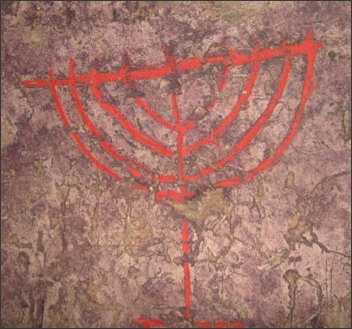Page 8 of 20
Reflections on Yom Kippur 5782.
The time of Yom Kippur is the time of our confession. We confess our sins together before God as a whole community, because they are not only “our private affairs”, if only because the effects of our offenses are often felt by other people. As Jews, we have also been –
Refleksje na Jom Kipur 5782
Czas Jom kippur to czas naszej spowiedzi. Nasze grzechy wyznajemy przed Bogiem wspólnie, jako cała społeczność, bowiem nie są one wyłącznie “naszymi prywatnymi sprawami”, choćby dlatego, że skutki naszych przewinień są często odczuwalne przez innych ludzi. Jako Żydzi
Thoughts on Parashat Vayelech.
Therefore, write down this poem and teach it to the people of Israel; put it in their mouths, in order that this poem may be My witness against the people of Israel. When I bring them into the land flowing with milk and honey that I promised on oath to their
Refleksja nad paraszą Wajelech
Zapiszcie teraz sobie ten oto hymn. Naucz go Izraelitów, włóż im go w usta, aby pieśń ta była dla Mnie świadkiem przeciwko synom Izraela. Gdy zaprowadzę ich do ziemi, którą poprzysiągłem ich przodkom,
Reflections on Rosh Hashanah 5782
The two Torah portions we read on Rosh Hashanah contain two stories: the story of Yitzhak’s birth and the Biding of Yitzchak story, known as Akeda. The latter has become extremely popular and
Refleksja na Rosz Haszana 5782
Dwie porcje Tory, które czytamy w Rosz Haszana zawierają dwie historie: historię narodzin Icchaka oraz historię związania Icchaka (Akeda). Szczególnie druga z nich stała się niezwykle popularna i szeroko komentowana przez całe generacje komentatorów, pisarzy, filozofów, myślicieli
Thoughts on parashat Nitzavim.
Human beings are religious beings. This means we have a natural tendency to develop religion or something that metaphysically deals with the problematic mystery of human existence. Every time human beings want to get rid of religion something else fills this gap and becomes a new religion.
Refleksja nad paraszą Nicawim
Ludzie są istotami religijnymi. Oznacza to, że mamy naturalną skłonność do tworzenia religii albo czegoś, co zajmuje się od strony metafizycznej problematyczną tajemnicą ludzkiej egzystencji. Za każdym razem, kiedy ludzie chcą się pozbyć religii, coś innego wypełnia tę
Thoughts on parashat Ki Tavo.
What are the Jewish values? Typically, when this question is raised, the following values are mentioned: devotion to live in community (Israel), education (Torah), governance of life by law (halacha), truthfulness and trustworthiness (emunah), justice and righteousness (tzedek), kindness
Refleksja nad paraszą Ki Tawo
Czym są wartości żydowskie? W odpowiedzi na to pytanie wymienia się zazwyczaj następujące spośród nich: oddanie się życiu we wspólnocie (Izrael), wykształcenie (Tora), praworządność życia (halacha), prawdomówność i wiarygodność (emuna), sprawiedliwość i prawość





